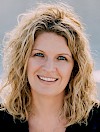AASP Newsletter - March 2021
Business Ownership in Sport Psychology SIG: Supporting Entrepreneurs and AASP Members in Private Practice
 |
|
|
It was a solid five years into my professional career that I finally realized I was running a business. In that same moment of time, I also realized that I actually had no idea how to run a business. When I came to the realization that I was in fact an entrepreneur, and I was in fact running a business, I also realized I better start educating myself on how to run that business. At that point I was running it on pure passion, drive, and luck. I had also hit a plateau and knew that if I wanted to level-up, it was time to stop reinventing the wheel and start getting educated on how to run a successful and thriving enterprise.
The field of sport, exercise, and performance psychology has seen significant growth over the past few decades, however, employment as a consultant has been a critical issue (Silva et al., 1999). Being a competent practitioner doesn't mean much if you can't get the word out that you exist. It is encouraged that practitioners in the field of sport and performance psychology continue their professional development in the knowledge and practice of performance enhancement consulting (Poczwardowski et al., 2020; Quartiroli et al., 2020). Additionally, the importance of developing business skills has been recognized (Blann et al., 2011; Taylor, 2015). We spend hours on continuing education for sport psychology competency, but how many hours are spent in continuing education on business competency?
The Business Ownership in Sport Psychology SIG was formed in recognition of the fact that some members at large would be going into business for themselves and that in order to do the work, you need understand how to get the work and how to run a business. When you decide to open up a private practice or run a solo business, you are running the entire show. This means that you are the CEO, CFO, head of marketing, the entire sales department, etc. There are many moving parts and the “Biz SIG” helps members navigate all of those moving parts.
I have been a member of the Business Ownership in Sport Psychology SIG since its inception. When I took on the position of SIG Coordinator and sat down to run my first SIG meeting at the conference, I decided that I didn’t want to be a SIG that meets once a year, gets excited about all the things we could do, and then hears crickets for the remainder of the year.
After the 2019 AASP Annual Conference, we began to hold quarterly zoom meetings for our SIG members. These meetings are also recorded and disseminated to the people that are unable to attend live. In the meetings we cover SIG business as well as crowdsource advice and ideas related to running a business in sport and performance consulting. New business related resources are being created and will be located on the Business Ownership in Sport Psychology SIG page, our first resource of which is an article on Questions to Ask Before you Sign the Lease on a New Office Space.
The Business Ownership SIG's goals and initiatives for 2021 are to:
- Continue quarterly SIG meetings
- Continue to create business related resources
- Creation of website and social media spreadsheet for SIG members
- Solidify SIG structure to support consistency through transfers of SIG leadership
- Support the creation of practitioner support groups for SIG members
If you are in private practice, it’s just as imperative to spend time continuing your education on the best practices of entrepreneurship and building a successful business. A common frustration heard within the field is that there may be practitioners positioning themselves as qualified to work with performers without the education and expertise to ethically do so. The reality is that although they may not be as qualified, they are better at the business and marketing side of the equation. Therefore, it is important that we as a field ensure that we are supporting competence in both areas.
If you are interested in joining the Business Ownership in Sport Psychology SIG, please contact Carrie Jackson Cheadle via email to request to join: carrie@carriecheadle.com
References
Blann, F. W., Shelley, G., & Gates, S. C. (2011). Marketing sport psychology services. Journal of Sport Psychology in Action, 2(1), 33-52. https://doi.org/10.1080/21520704.2011.564719
Poczwardowski, A., Aoyagi, M., Fritze, T., & Laird, M. (2020). Revisiting “gaining entry”: Roundtable discussion 25 years later. The Sport Psychologist, 34(2), 153-161. https://doi.org/10.1123/tsp.2018-0189
Quartiroli, A., Wagstaff, C. R. D. Herms, M., & Kemmel, C. (2020, September 24). The future of continuing education and lifelong learning in sport psychology professionals: A Delphi study. Professional Psychology: Research and Practice. Advance online publication. https://doi.org/10.1037/pro0000362
Silva, J. M., Conroy, D. E., Zizzi, S. J. (1999). Critical issues confronting the advancement of applied sport psychology. Journal of Applied Sport Psychology, 11(2), 298-320. https://doi.org/10.1080/10413209908404206
Taylor, J. (2015). Practice development in sport and performance psychology. FIT Publishing.
More in This Newsletter
Use the links below to read more articles in this issue, or return to the table of contents.- Next article: Association Financial Report - Spring 2021
- Previous article: Diversity Corner: Integrating Inclusive Language Into Your Practice



